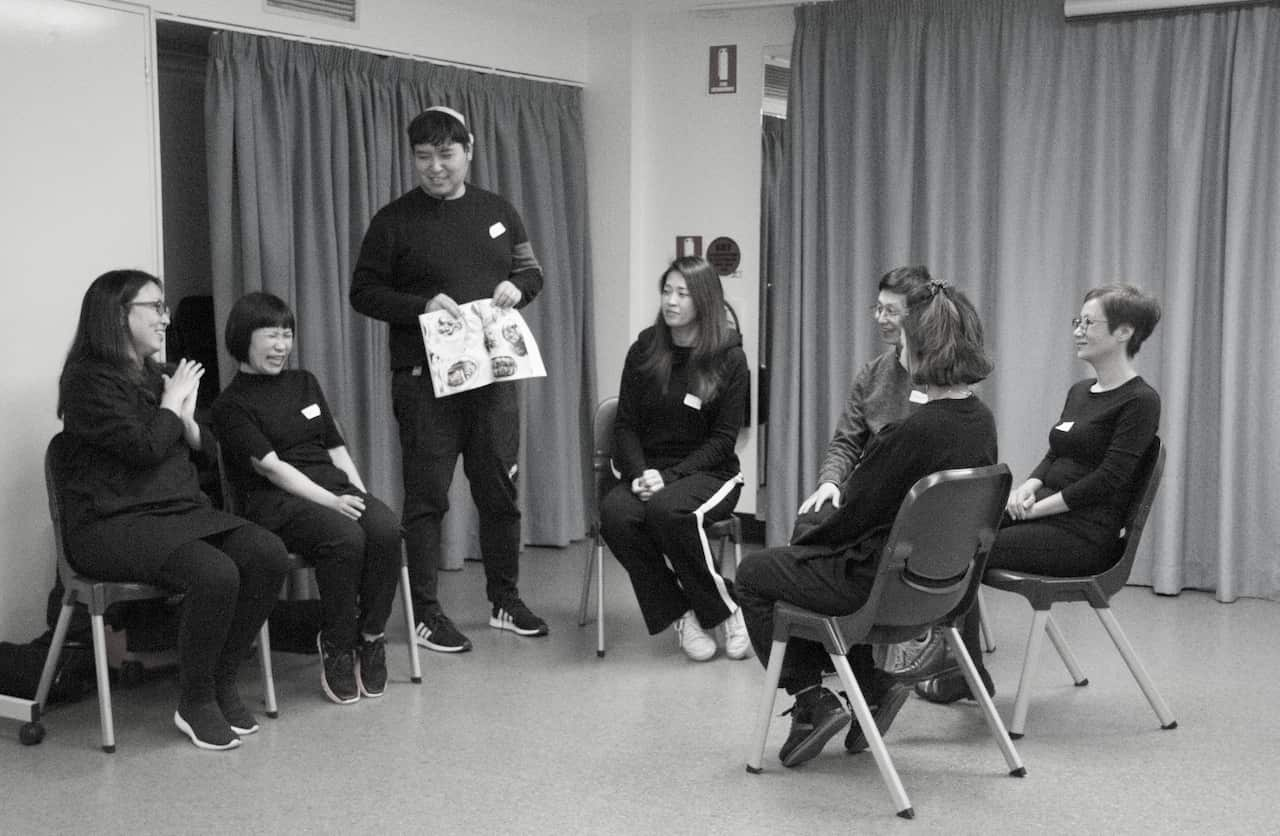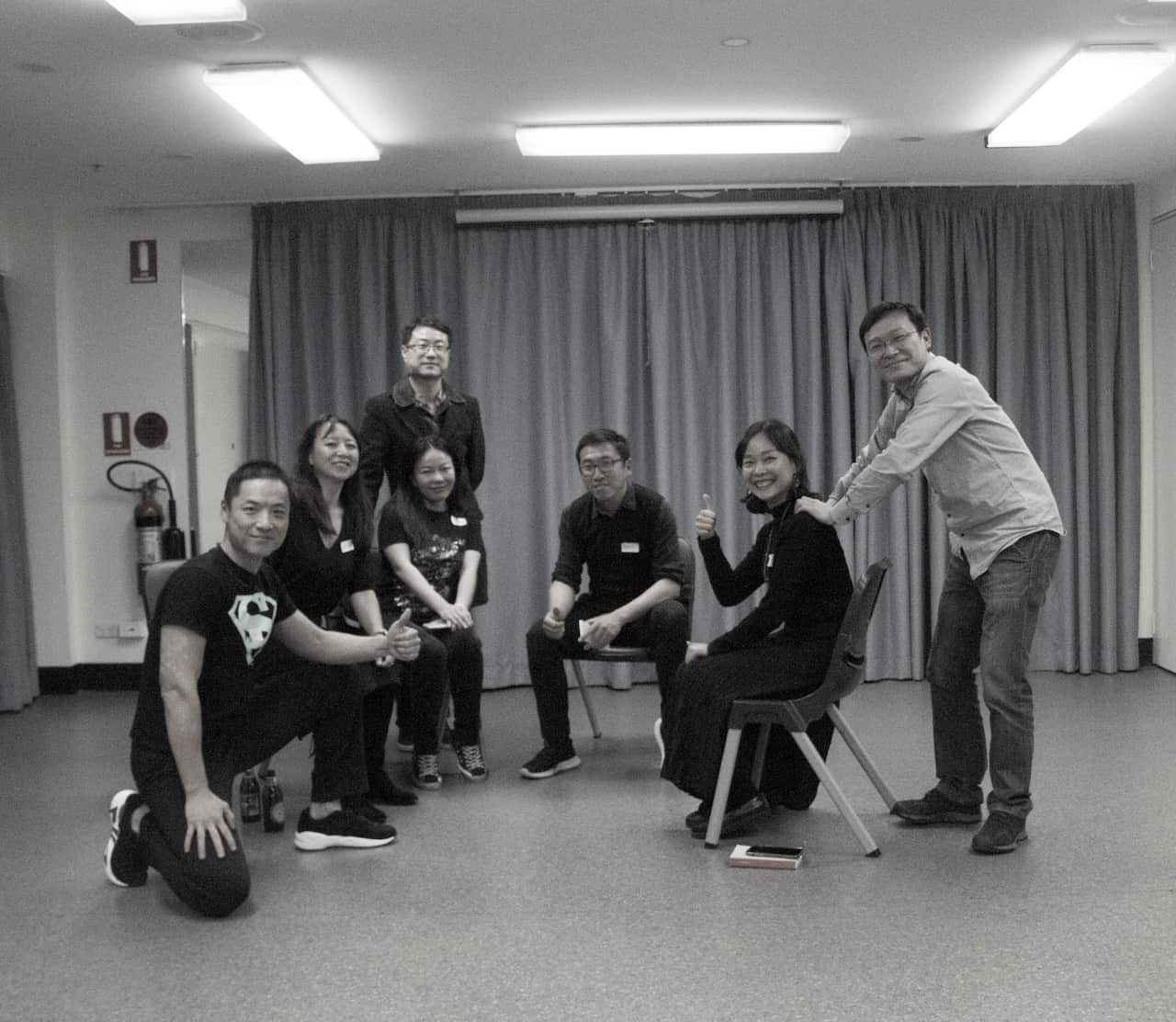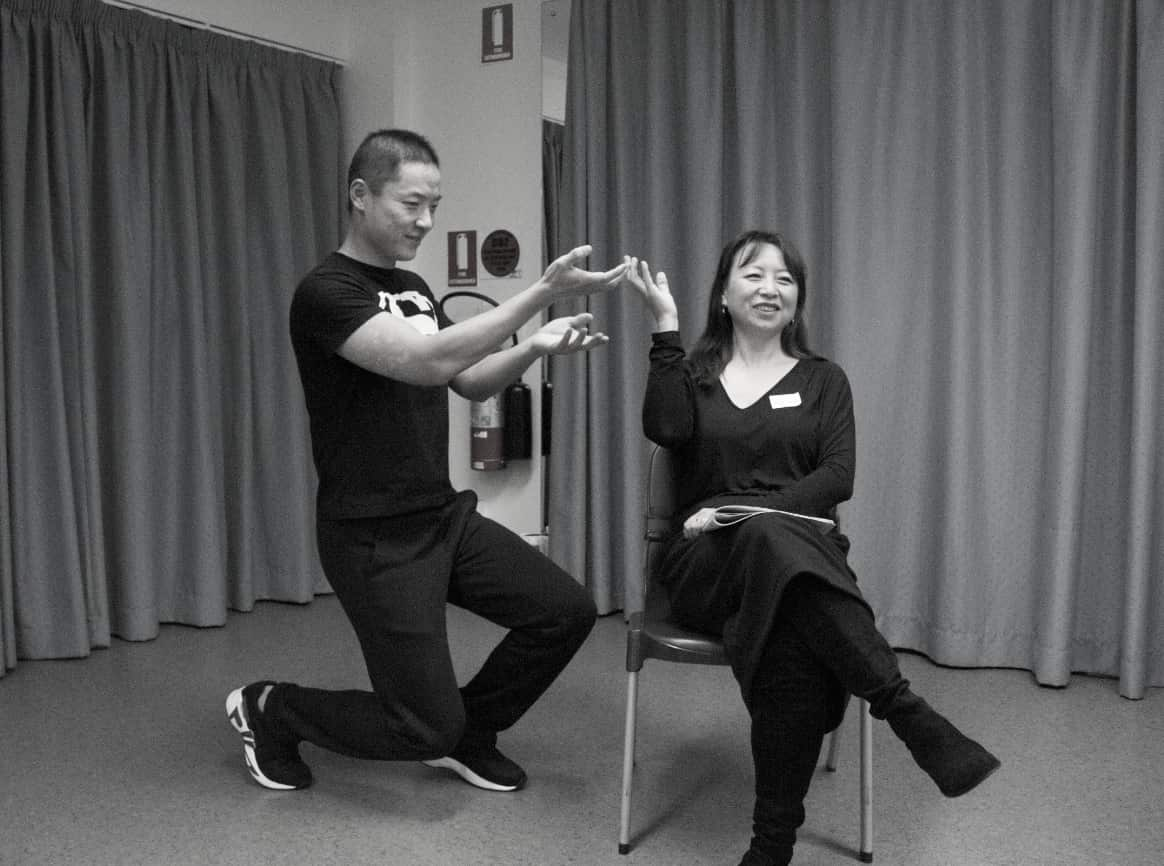Sydney woman Angela Xu was a university drama teacher in China for ten years before she immigrated to Australia, and she's well aware of the uniting power of the performing arts.
“When you’re on the stage and you know it’s not the reality, you feel free to expose the other 'yourself' who has been constrained,” she said.
“The performance guides us to seek for the answer to a common: we crossed lands and seas to arrive in Australia, and how do we regain the sense of belonging? As an immigrant, how do we improve ourselves?”
Fellow Chinese migrant Meili Yu holds a regular reading club in the Chinese community in Sydney where people who regard themselves as "foreigners in Australia" talk about affairs back in their homelands, and things happening in Australia. But noticing that some community members faced personal obstacles in integrating into Australia, the two women decided to act.
But noticing that some community members faced personal obstacles in integrating into Australia, the two women decided to act.

Source: SBS
In mid-July, they initiated an activity called An Immigrant Prepares — which is a two-hour gathering of Chinese migrants in a studio in the northern Sydney suburb of Chatswood, focusing on performing creative drama on-stage.
The class was inspired by Russian theatre practitioner Konstantin Stanislavski’s first book on acting, titled An Actor Prepares, which is a diary of a fictional student named Kostya during his first year of acting training. The Sydney class has so far attracted more than 20 students.
The Sydney class has so far attracted more than 20 students.

Source: credit by AACA创意戏剧工作坊
“No preparation in advance is needed, nor does anyone need to posses performing experience,” Ms Xu said, adding that the creative drama was a branch of the improvisational theatre which "has been very popular in the western world for decades".
What is performed in the class is unplanned or unscripted. The participants listen to each other, and spontaneously create the dialogue, story and characters together, sharing and expressing themselves, which eventually aims to draw out each student's inner self.
In the class, Ms Yu had once played herself looking ten years into the future. In her imagination, a regular day of her life in retirement would start with yoga in the morning, a bus trip with a tourist group after that, and ends with enjoying the sunset by the campfire. The performance is imaginary, yet the topic is down to earth.
The performance is imaginary, yet the topic is down to earth.

Source: SBS
Ms Yu said the performances were about the reflection of the life of an immigrant.
“We are the first-generation immigrants, who are very likely to face a new predicament that our parents never experienced," she said.
“We need to establish a new lifestyle in the new country, in which we adapt to the society around us, yet we are still able to pass our culture onto the next generation.”
According to a study by the Australian Unity Personal Well-being Index, migrants who adapted to Australian society had greater personal well-being than those who didn't.
The research found that the more time spent in Australia didn't necessarily lead to more personal well-being if skilled migrants don’t adapt to Australian culture.
Ms Yu said immigrants from China were often conflicted between upholding their traditional Chinese culture and embracing the culture they immigrate into.
Both women believe that new immigrants shouldn't abandon their own culture while trying to integrate.
“You need to be yourself first before you try to be an Australian,” Ms Yu said.





